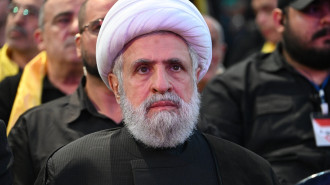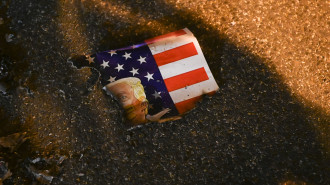Iraqi interpreter reveals new details about Saddam's capture
Iraqi interpreter reveals new details about Saddam's capture
Feature: New accounts suggests the US fabricated details of Saddam Hussein's capture, notably that he was hiding in a hole, to further humiliate him.
3 min read
US forces reportedly altered Saddam's appearance after his capture [AFP]
Mystery continues to surround the fall of Baghdad to US-led coalition forces 12 years ago, and events that followed.
But some have more insight than others into key events. one of those, Firas Ahmad, a 41-year-old Iraqi interpreter, has given al-Araby al-Jadeed details, previously secret, about this period.
Ahmad recently returned to Iraq briefly, five years after leaving for the US. He was granted US citizenship under a bill approved by the US Congress in 2007 to grant special immigration visas leading to citizenship for Iraqis who worked for the US army in Iraq. Ahmad's return to Baghdad was, as expected, not easy.
An Iranian-backed militia had made his father's house their headquarters, and his brothers had left after he was named as a collaborator. The interpreter stayed with his aunt for several days before deciding to leave Iraq for good.
Ahmad gave al-Araby al-Jadeed new details about the capture of the late Iraqi dictator Saddam Hussein in December 2003.
"Two days after Saddam was captured, a celebration was held for US commanders at the Rehab Palace. I was there to translate for Iraqi politicians expected to attend the event. While there I learned Saddam was not found in a hole as claimed by the official US account," the Iraqi explained.
Ahmad said Saddam was actually found in a reinforced underground bunker beneath a modest-looking rural house, that Saddam had turned into his headquarters. The US captured one of Saddam's bodyguards who revealed its location.
Reportedly, the bunker contained weapons, a bed, a prayer mat, a copy of the Quran, dry food, and tobacco. The dictator did not resist and opened the door as dozens of soldiers were trying to kick it down. US soldiers then incapacitated him by throwing knockout gas grenades.
A US army captain told Ahmad the picture of Saddam in a hole was taken after his capture. The hole was found near the house. It is similar to other holes found in homes in areas above the Tigris river, and was used to keep water pumps in. Saddam's capture was fabricated to humiliate him.
US soldiers also apparently altered Saddam's appearance while he was unconscious, before taking pictures and sending them to Washington.
Saddam was captured in what US forces called Operation Red Dawn, near the Iraqi city of al-Dour in Salahuddin province.
Firas Ahmad also told al-Araby al-Jadeed about his experience before he left Baghdad to travel to Washington via Erbil. The interpreter worked for the 101st Airborne Division of the US army between 2003 and 2009.
"While I worked for the US I saw many things that would make Iraqis proud. I also saw shameful things including politicians selling their homeland and its people to the US," he said.
Some Islamist politicians would try to woo US forces by offering to build churches or memorials for US soldiers killed in Iraq. Others reportedly asked occupation forces to use excessive force against resistance strongholds such as Fallujah and disregard civilian lives.
The translator is thinking of writing a book about his experiences.
"Most of those who helped US forces in Iraq were given US citizenship. However, many suffer from isolation and guilt. They see rivers of blood and the failure of everything they hoped for," he explained.
He knows three Iraqis who have committed suicide in the US. "I returned to Baghdad to find peace of mind, but I decided to leave again. The camel is dead and flogging it is useless."
But some have more insight than others into key events. one of those, Firas Ahmad, a 41-year-old Iraqi interpreter, has given al-Araby al-Jadeed details, previously secret, about this period.
Ahmad recently returned to Iraq briefly, five years after leaving for the US. He was granted US citizenship under a bill approved by the US Congress in 2007 to grant special immigration visas leading to citizenship for Iraqis who worked for the US army in Iraq. Ahmad's return to Baghdad was, as expected, not easy.
An Iranian-backed militia had made his father's house their headquarters, and his brothers had left after he was named as a collaborator. The interpreter stayed with his aunt for several days before deciding to leave Iraq for good.
Ahmad gave al-Araby al-Jadeed new details about the capture of the late Iraqi dictator Saddam Hussein in December 2003.
| Saddam was actually found in a reinforced underground bunker beneath a modest-looking rural house. |
"Two days after Saddam was captured, a celebration was held for US commanders at the Rehab Palace. I was there to translate for Iraqi politicians expected to attend the event. While there I learned Saddam was not found in a hole as claimed by the official US account," the Iraqi explained.
Ahmad said Saddam was actually found in a reinforced underground bunker beneath a modest-looking rural house, that Saddam had turned into his headquarters. The US captured one of Saddam's bodyguards who revealed its location.
Reportedly, the bunker contained weapons, a bed, a prayer mat, a copy of the Quran, dry food, and tobacco. The dictator did not resist and opened the door as dozens of soldiers were trying to kick it down. US soldiers then incapacitated him by throwing knockout gas grenades.
A US army captain told Ahmad the picture of Saddam in a hole was taken after his capture. The hole was found near the house. It is similar to other holes found in homes in areas above the Tigris river, and was used to keep water pumps in. Saddam's capture was fabricated to humiliate him.
US soldiers also apparently altered Saddam's appearance while he was unconscious, before taking pictures and sending them to Washington.
Saddam was captured in what US forces called Operation Red Dawn, near the Iraqi city of al-Dour in Salahuddin province.
Firas Ahmad also told al-Araby al-Jadeed about his experience before he left Baghdad to travel to Washington via Erbil. The interpreter worked for the 101st Airborne Division of the US army between 2003 and 2009.
"While I worked for the US I saw many things that would make Iraqis proud. I also saw shameful things including politicians selling their homeland and its people to the US," he said.
Some Islamist politicians would try to woo US forces by offering to build churches or memorials for US soldiers killed in Iraq. Others reportedly asked occupation forces to use excessive force against resistance strongholds such as Fallujah and disregard civilian lives.
The translator is thinking of writing a book about his experiences.
"Most of those who helped US forces in Iraq were given US citizenship. However, many suffer from isolation and guilt. They see rivers of blood and the failure of everything they hoped for," he explained.
He knows three Iraqis who have committed suicide in the US. "I returned to Baghdad to find peace of mind, but I decided to leave again. The camel is dead and flogging it is useless."
This article is an edited translation from our Arabic edition.
Opinions expressed in this article remain those of the author and do not necessarily reflect those of al-Araby al-Jadeed, its editorial board or staff.
Opinions expressed in this article remain those of the author and do not necessarily reflect those of al-Araby al-Jadeed, its editorial board or staff.

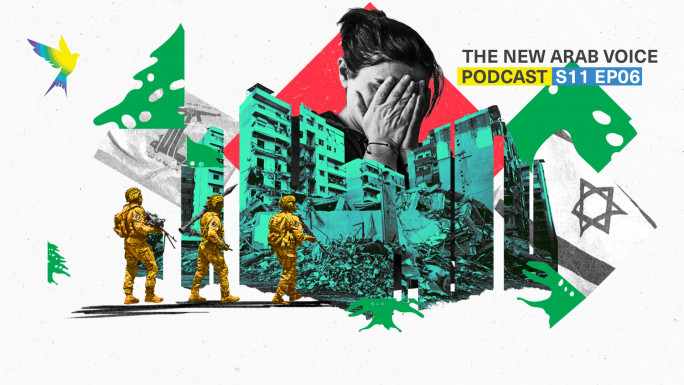
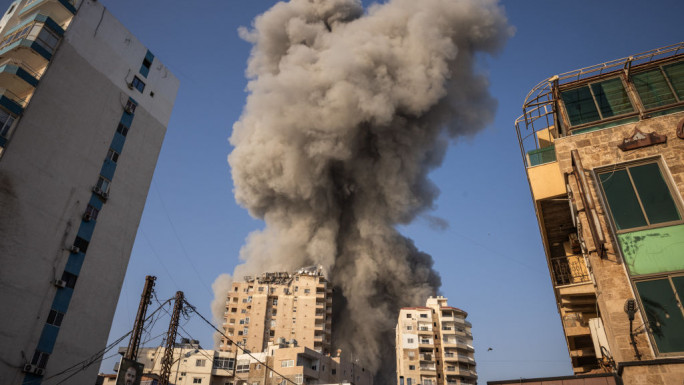
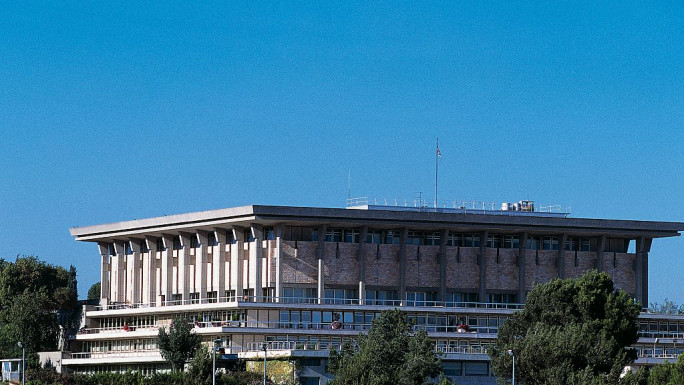
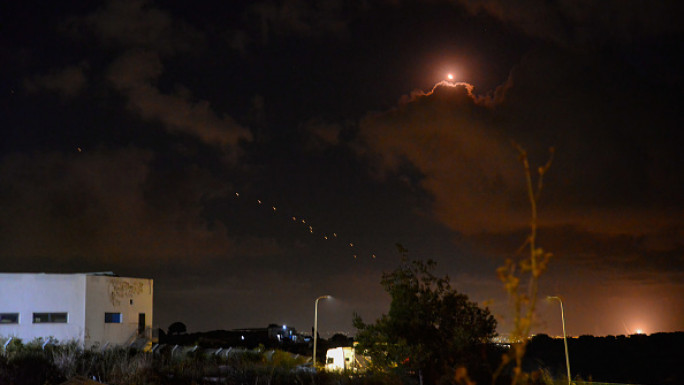
 Follow the Middle East's top stories in English at The New Arab on Google News
Follow the Middle East's top stories in English at The New Arab on Google News

